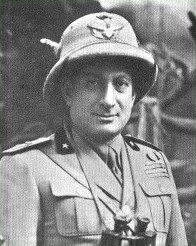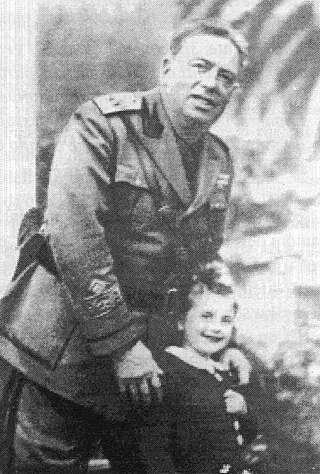
Francesco de Sanctis was an Italian literary critic, scholar and politician, leading critic and historian of Italian language and literature during the 19th century.

Carlo Lizzani was an Italian film director, screenwriter and critic.

Raffaele La Capria was an Italian novelist and screenwriter.

Francesco de Martini was an Italian officer of the Military Information Service in Eritrea, when the Allies invaded Italian East Africa during World War II. He enlisted as a private in the Royal Italian Army in 1923, and left active service as brigadier general and the most decorated soldier of the Royal Italian Army during World War II.
The War Cross for Military Valor is an Italian order for military valor. Established in 1922, the cross may be awarded only in time of war.
The Scissionisti di Secondigliano or Amato-Pagano clan is a Camorra clan from the Secondigliano district of Naples, headed by Raffaele Amato and Cesare Pagano. They are also known as "Spagnoli" (Spaniards) because of their strong presence in Spain, particularly in Costa del Sol and Barcelona.
Aldo Stella was an Italian historian specialising in the Italian Anabaptist movement.
Mario Borrelli was a Neapolitan priest, sociologist and educationist.

Silvio Spaventa was an Italian journalist, politician and statesman who played a leading role in the unification of Italy, and subsequently held important positions within the newly formed Italian state.

The Italian honours system is a means to reward achievements or service to the Italian Republic, formerly the Kingdom of Italy, including the Italian Social Republic.

Pino Rucher was an Italian guitarist active in orchestral settings and in film soundtracks.
DeepCon is an Italian science fiction, fantasy and horror fan convention, covering multiple entertainment forms and media, mixed with a dose of actual, real-world science.

Gustavo Pesenti was an Italian general. He was Italian colonial governor of Somaliland.
Raffaello Bellini was an Italian zoologist.

Giuseppe Artale was a Sicilian poet, novelist, and duelist, known for his Marinist works. He was also a knight of the Constantinian Order of Saint George.

Ottavio Serena was an Italian politician, judge, prefect and historian. He is known in his hometown Altamura for his works about local history, such as the Altamuran Revolution (1799). His contribution and the testimonies he collected allowed to shed light on some historical events (such as the killing of Giovanni Firrao and on legendary toponyms.

Alessandro Casati was an Italian academic, commentator and politician. He served as a senator between 1923 and 1924 and again between 1948 and 1953. He also held ministerial office, most recently as Minister of War for slightly more than twelve months during 1944/45, serving under "Presidente del Consiglio" Bonomi.
Annibale Giuseppe Nicolò Giordano was an Italian-French mathematician and revolutionary.
Eustachio Pisani was an Italian entrepreneur.

Silvio Parodi was an Italian Fascist politician and soldier.
2 Decreto 4 feb.1923,Decreto firmato S.M. Vittorio Emanuele III, contro-segnato A.Diaz, visto P. Boselli; Iscritto nel ruolo dei Cavalieri Nazionali al n.21180,serie2a.
3 Elenco Grandi Ufficiali n.5551 serie 3a.












